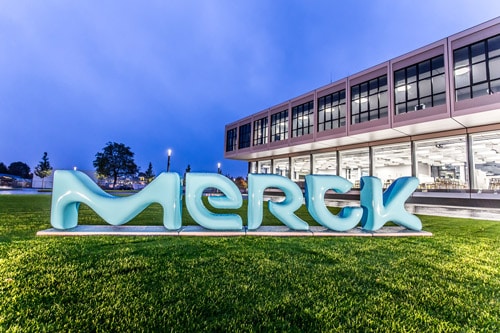
Japan’s medicines regulator has approved Merck KGaA’s oral MET inhibitor tepotinib for non-small cell lung cancer with MET exon 14 (METex14) mutations, which occur in 3% to 5% of all NSCLC cases.
The Japanese approval is the first worldwide for tepotinib – which will be sold there as Tepmetko – and is also the first for a drug in the oral MET inhibitor class for MET-positive NSCLC, a particularly aggressive form of lung cancer.
Merck describes the approval as “line-agnostic,” in other words tepotinib can be used in any patient with the METex14 mutation, regardless of whether they are treatment-naïve or have received earlier lines of therapy,
The approval comes on the back of a phase 2 study – called VISION – which enrolled patients with METex14-positive NSCLC based on a just-approved companion diagnostic developed by genome analysis specialist ArcherDX that can detect the mutation from a blood test or tumour biopsy.
The study included 99 patients – 15 from Japan – and showed that daily, oral dosing of tepotinib treatment was resulted in an objective response rate of 42%, with a median duration of response of just over 12 months. The drug has been approved at a once-daily dose of 500 mg.
Merck’s closest rival in the MET-positive lung cancer race is Novartis, whose capmatinib started a priority review in the US last month based on the results of the phase 2 GEOMETRY study.
That showed an overall response rate with capmatinib of 68% with the drug among 28 treatment-naive patients and 41% among 69 previously-treated patients. The median duration of response was 11.1 and 9.7 months respectively.
Merck has been awarded breakthrough status from the FDA for tepotinib in MET-positive NSCLC, and is thought to be close to a regulatory filing in the US.
Other rivals include AstraZeneca with small-molecule candidate savolitinib in mid-stage testing for NSCLC patients who have progressed after treatment with its EGFR inhibitor Tagrisso (osimertinib) as well as in combination.
MET is known as a resistance mechanism for EGFR-positive NSCLC, and Merck also has a trial on the go of tepotinib plus Tagrisso in this setting.
Meanwhile Symphogen has a MET-targeting antibody combination – codenamed Sym015 – in trials for METex14-positive solid tumours, although it is in the midst of a strategic review of its operations.
ArQule and Kyowa Hakko abandoned their MET inhibitor tivantinib in 2017 after a string of trial failures, while GlaxoSmithKline/Exelixis’ also seem to have dropped their MET/VEGF inhibitor foretinib and Amgen has also dropped its candidate AMG 337.




